iPhone 14 Pro Max tops global smartphone shipments as people shun budget phones for top-end devices
Last year, iPhone 13 was the bestselling smartphone, indicating a preference toward entry-level flagships. This year, it's Apple's most expensive phone that's taken the crown.
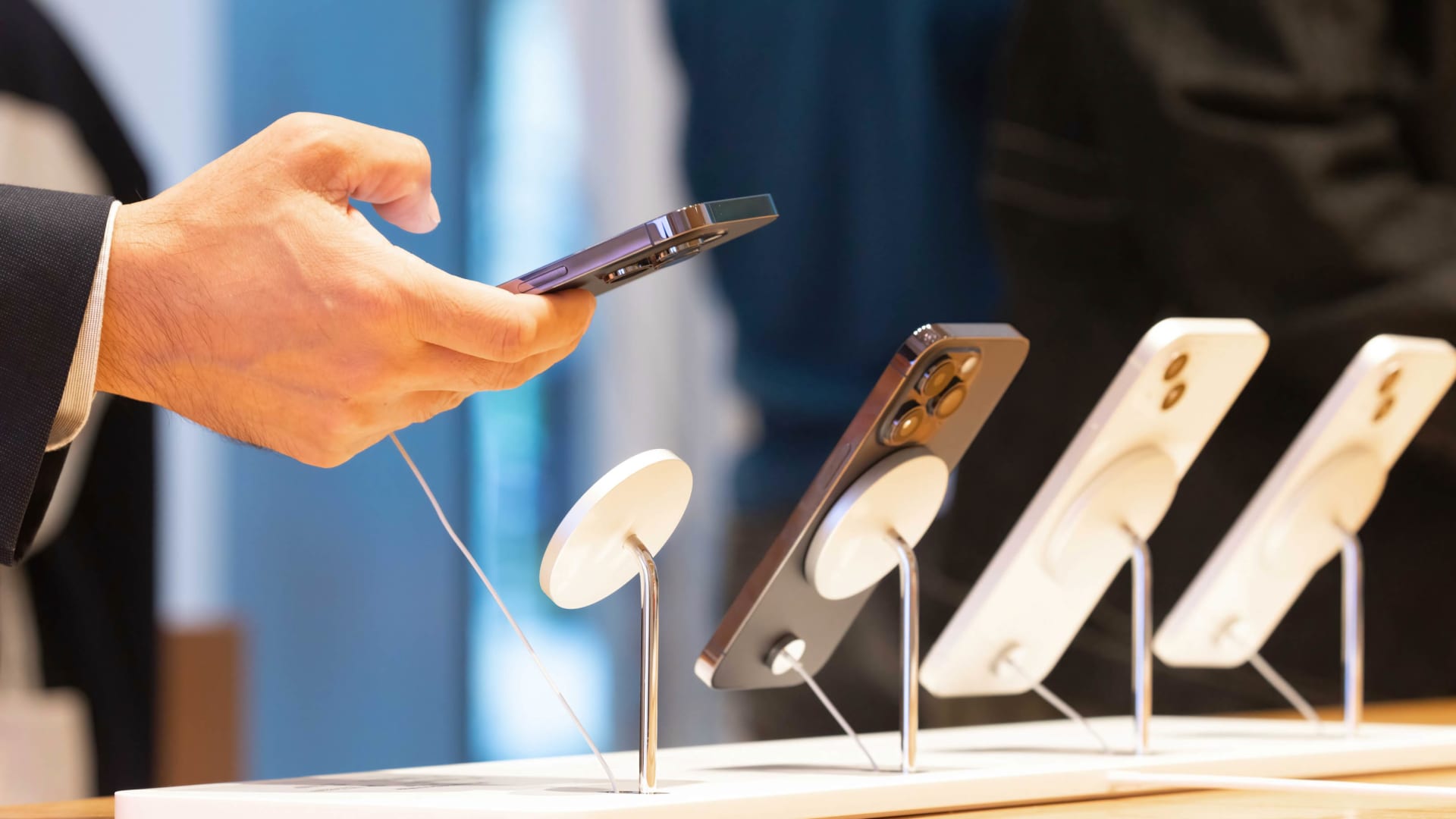
Customer inspects iPhone 14 Pro Max inside an Apple store in Marunouchi, Tokyo.
Stanislav Kogiku | SOPA Images | Lightrocket | Getty Images
The iPhone 14 was the most-shipped smartphone in the first half of the year, according to research firm Omdia, reflecting a shift in consumer buying habits toward the most high-end devices on the market and away from low- to mid-range phones.
In the January-to-June period, Apple's iPhone 14 Pro Max shipped 26.5 million units — the most out of any model from any manufacturer — compared with 21 million unit shipments for the iPhone 14 Pro.
That's according to Omdia's "Smartphone Model Market Tracker - 2Q23" report, which tracks sales of different models of phone.
Apple accounted for all four of the top-shipping models, with the iPhone 14 coming in third on 16.5 million units, and the iPhone 13 selling 15.5 million units.
There was a noticeable difference in which phones took the greatest share out of the entire market.
Last year, the iPhone 13 was the bestselling device on the market, indicating consumers were still buying flagship devices but at the entry level rather than the top end.
This year, the iPhone 14 Pro Max, the most expensive of the Cupertino, California, tech giant's smartphone array, has taken the crown.
It reflects a growing shift among consumers toward the more higher-end parts of the market.
Phones haven't changed that dramatically over the past few years, and manufacturers have been opting to release more incremental upgrades to their devices focusing on camera upgrades and more powerful chips.
That's led to a general malaise from consumers when it comes to smartphones, which are today an essential device for both work and personal life.
Sky-high prices north of $1,000 attached to the top-end phones from companies like Apple, Samsung and Xiaomi have also put people off buying flagship phones more generally.
WATCH: 'Sea of sameness': Are smartphone makers out of ideas?
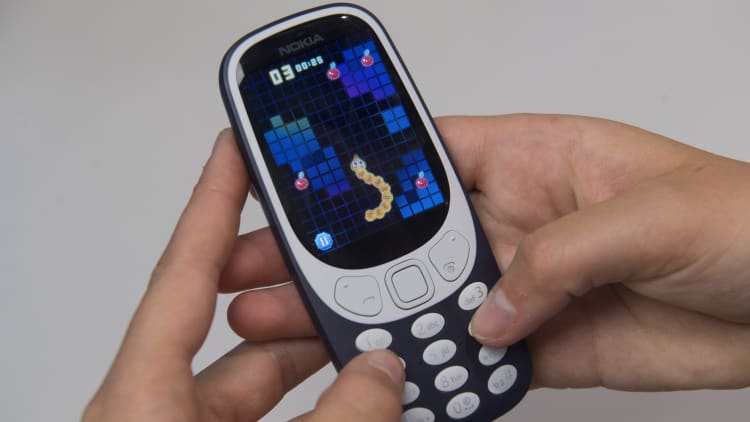
To that end, consumers are holding onto their devices for longer and waiting it out until they reach a certain point in their lives at which they feel they need a replacement for their phones — usually when it breaks.
But people have shown greater willingness to pay a high premium for companies' most expensive devices in the range, because they want an upgrade with the best features on the market.
The Samsung Galaxy A14 was the fifth best-selling phone in the first half shipping 12.4 million units.
The South Korean tech giant's top model in its current range, the Galaxy S23 Ultra, was the sixth-best performer with 9.6 million unit shipments.
Devices from Chinese manufacturers did not feature in the top 10 best-shipping smartphones, with Omdia noting that shipments of Chinese smartphones saw double-digit declines from 2022 due to a slump in the mid- to low-end smartphone market.
The numbers are an important indicator of sentiment among consumers when it comes to smartphones, particularly as Apple gears up for the launch of its new iPhone 15 in the autumn.
Apple is expected to see flat or slightly lower shipments of its iPhones overall this year, according to Omdia.
However, its Pro and Pro Max models are expected to continue to increase "due to solid demand for premium models," said Jusy Hong, senior research manager at Omdia.
Global smartphone shipments will decline 6% year on year to 1.15 billion devices, logging the worst performance in a decade, according to earlier data from Omdia.
Apple shares were up less than 1% early trading Monday. The company's stock has risen around 37.5% year to date.
Correction: Apple's stock has climbed around 37.5% year to date. An earlier version misstated the percentage.

 KickT
KickT 








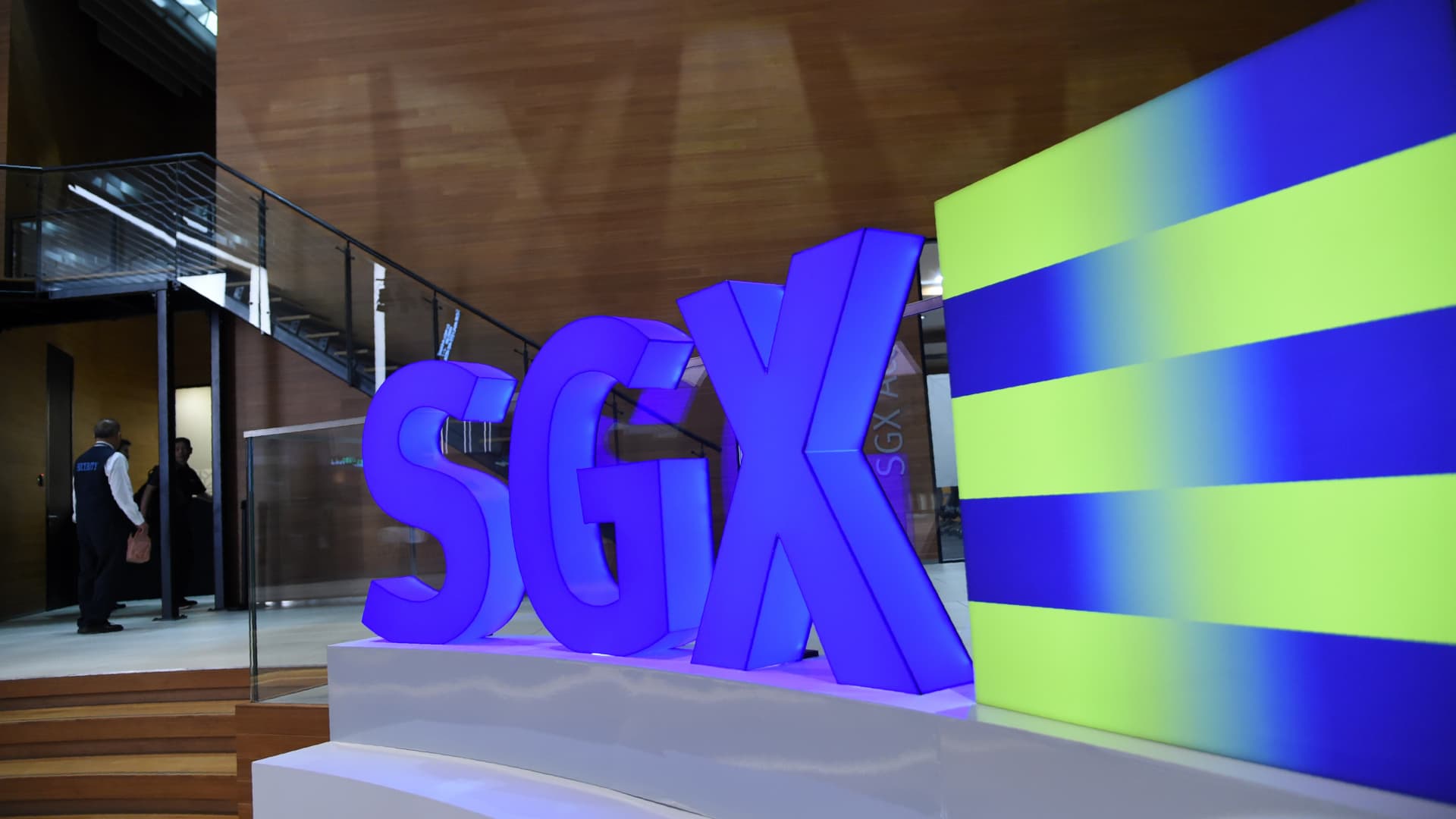


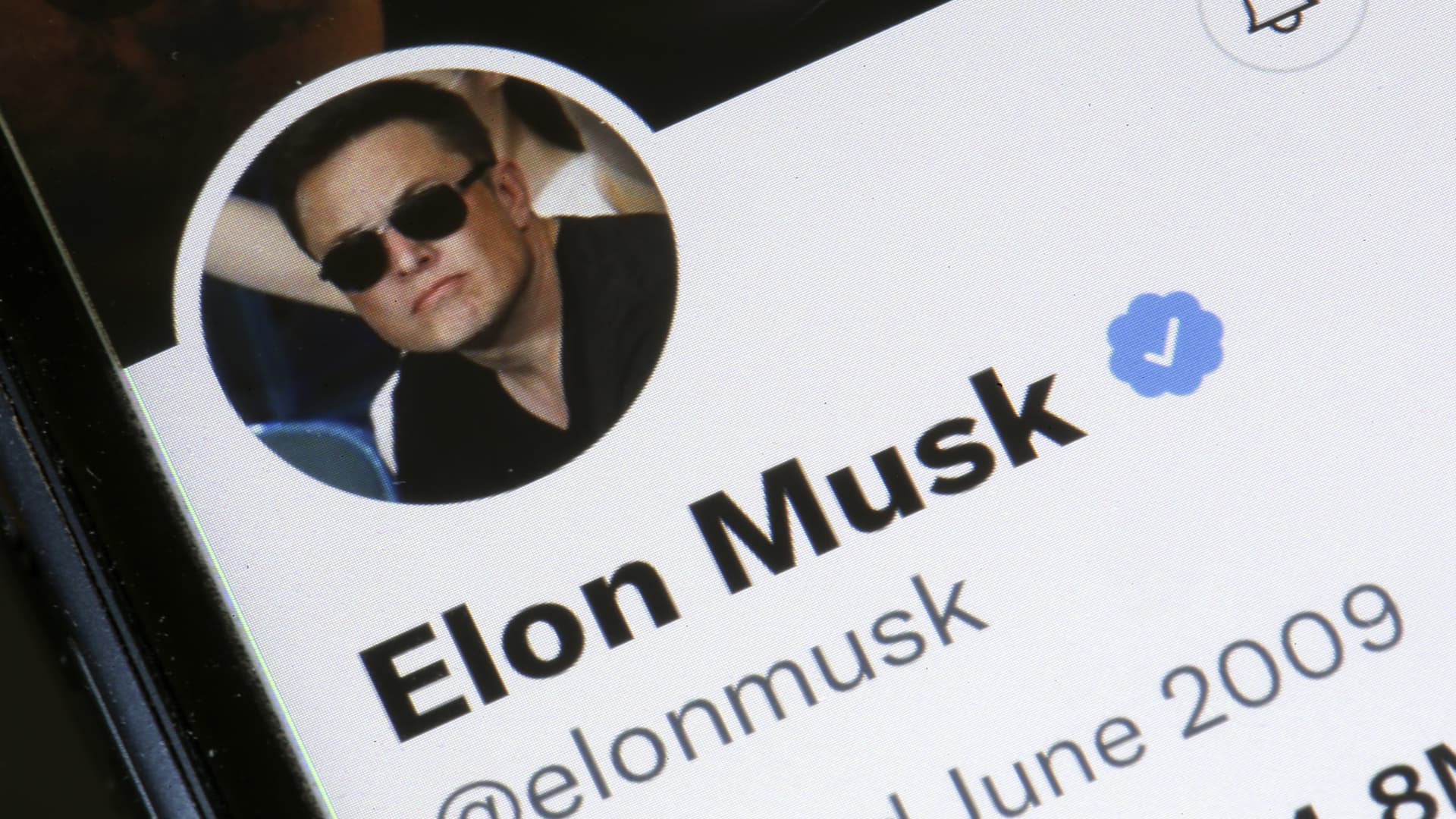
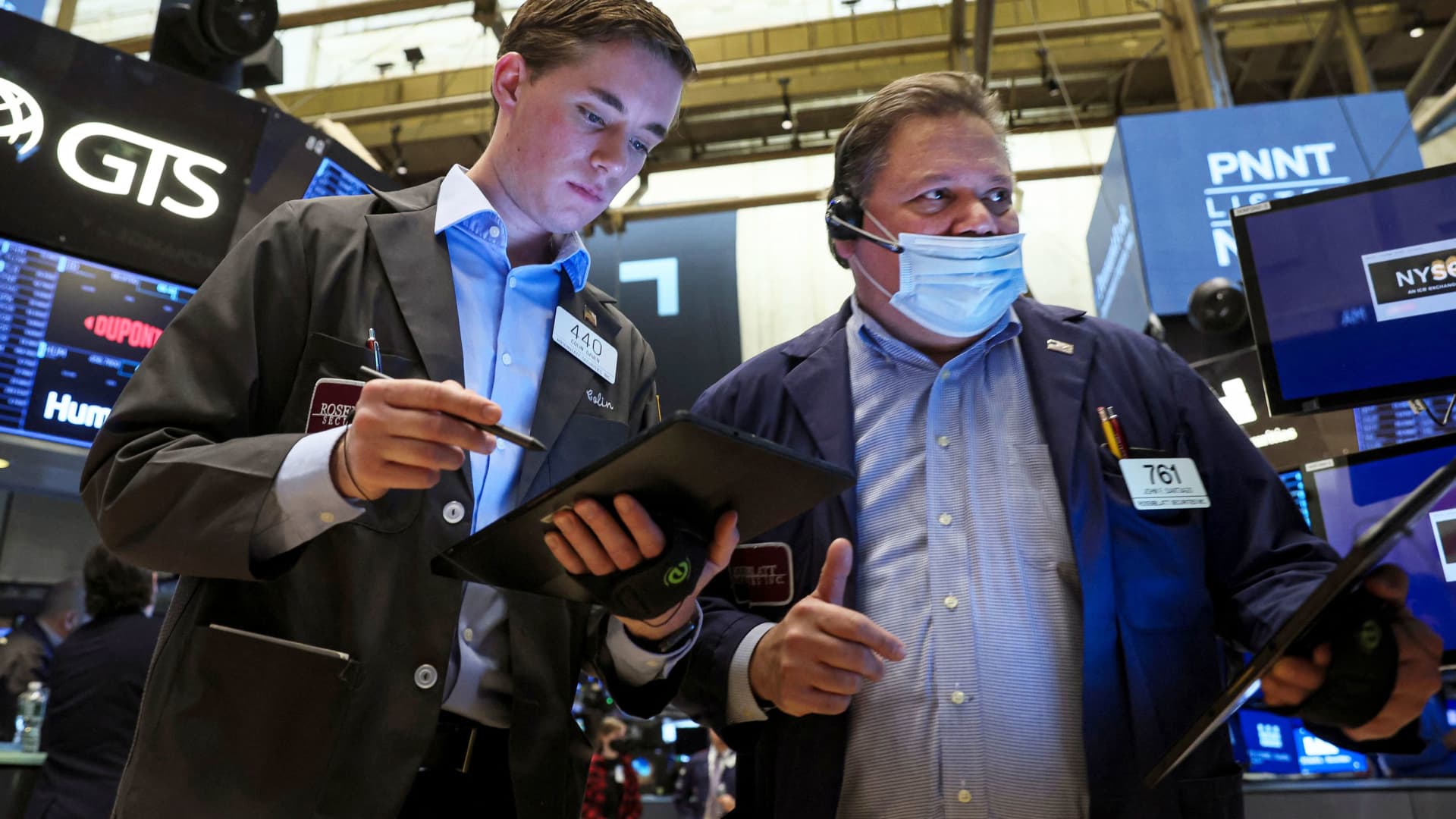







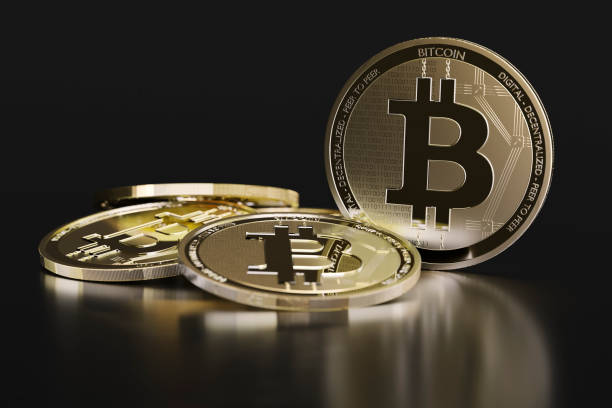
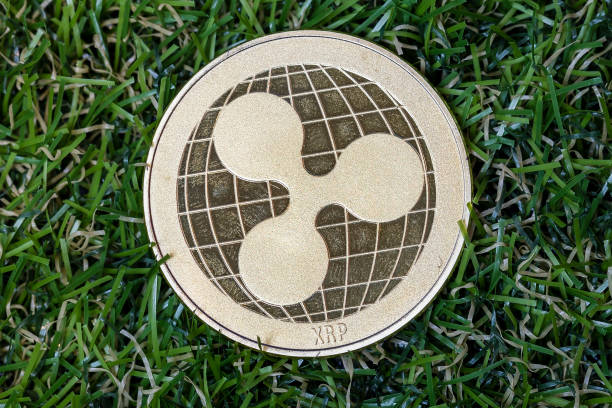




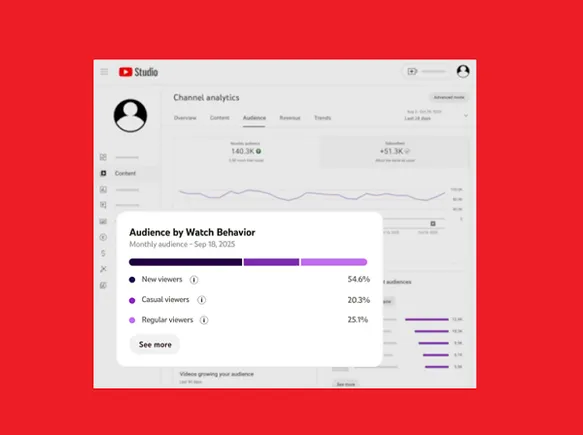




.jpg)